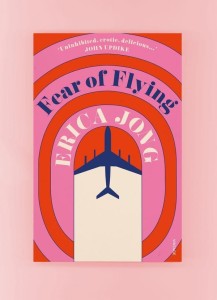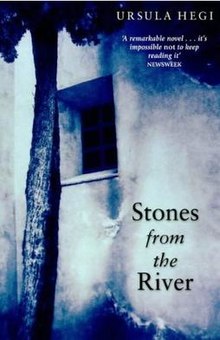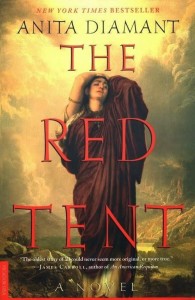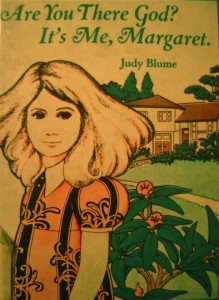The Lilith Blog 1 of 2
January 24, 2019 by Chloe Rose Stuart-Ulin
5 Classic Novels for Jewish Feminists
The distinction between female and feminist stories seems to blur sometimes. “Strong female leads,” while catchy, aren’t as important as complex, well-developed protagonists.
For your reading pleasure (and edification), I’ve selected fiction written by women of different feminist eras, all of whom set out to depict women in historical moments ranging from Biblical to 70’s suburbia. Their visions of womanhood are honest and thoughtful, and I bet that even the ones you don’t like at first will prompt fierce thought and discussion. Don’t see your favorite books here? Tell us what they are in the comment section!
 Fear Of Flying by Erica Jong (1973)
Fear Of Flying by Erica Jong (1973)
This #1 New York Times bestselling novel follows Isadora Wing, a highly phobic and sexually liberated anti-hero. The author of a book of erotic poems, Isadora writes of her adventures on a trip to Vienna to attend a psychoanalytic conference with her husband, where she meets another man who lures her away on a jaunt across Europe. Written in the midst of the Sexual Revolution and second-wave feminism, Fear of Flying depicts a protagonist who proved highly controversial at the time: an intellectually powerful and sexually awakened woman.

Stones From The River by Ursula Hegi (1994)
This novel, written in 1994, follows the life of Trudi Montag from 1915 and 1952. A social outcast as a dwarf living in a small German town, Trudi becomes the town’s unofficial historian and storyteller, transforming over the course of the novel from malicious gossip to caring artist. For Trudi, being different is a secret that all humans share—from her mother who flees into madness, to her friend Georg whose parents pretend he’s a girl, to the Jews Trudi harbors in her cellar.
 The Red Tent by Anita Diamant (1997)
The Red Tent by Anita Diamant (1997)
In The Book of Genesis, the character Dinah is only hinted at briefly. In the bestselling sensation The Red Tent, Dinah is the protagonist, along with her mothers— Leah, Rachel, Zilpah, and Bilhah—the four wives of Jacob. This novel explores the traditions and turmoils of ancient womanhood: the world of the red tent, the place where the women of Dinah’s tribe reside during their time of menstruation. Dinah’s mothers give her gifts that sustain her through a hard-working youth, a calling to midwifery, and a new home in a foreign land. The New York Times bestseller received wide praise for giving voice to the women of the bible, filling a staggering void in biblical history. The book was later adapted into a TV miniseries in 2014.
The Other Einstein by Marie Benedict (2016)
The Other Einstein tells the story of Mileva “Mitza” Marić, a brilliant physicist from Zurich whose vital contributions to the special theory of relativity are widely debated. She also happened to be Albert Einstein’s first wife—a partnership that initially emboldened and then smothered her ambition. The Other Einstein is a troubling portrayal of a genius sidelined by the fame of her husband and a profoundly sexist professional community. You’ll have to excuse the hamfisted title. (Is it a clever allusion to the novel’s theme, or a product of sexist marketing strategy?).
 Are You There God, It’s Me, Margaret by Judy Blume (1970)
Are You There God, It’s Me, Margaret by Judy Blume (1970)
Judy Blume’s Are You There God, It’s Me, Margaret, is a must-read for feminists of every age, and my absolute favorite on this list. The book follows Margaret Simon, a sixth-grade girl navigating classic pre-teen issues like puberty, bras, and boys. Her social anxieties at school mingle with her parents’ hard-won interfaith marriage at home, leading her to explore different religions and beliefs. Written 50 years ago (!), Are You There God is as honest as it gets; no treacle, no fluff. Judy Blume reminds women of what it was like to grow up with uncertainties, and reassures young girls that their trials are universal. If you haven’t read this book yet, I highly recommend it.
 Please wait...
Please wait...